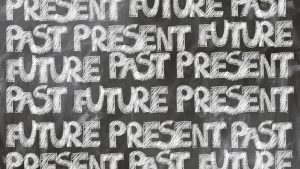
Do you get confused when you try to use the word “past”?
Today we’ll put your confusion in the past and we’ll show you how to use this word correctly.
Today we’ll start with a listener question:
Hi Lindsay and Michelle,
This is Stefano [pronounced Ste’phano], from Italy. Thank so much for your work! Your podcast is hands-down the best ever. Listening to it gave a boost to my English since the very beginning and now can’t stop hearing it. Not only is your talking style cristal-clear and entertaining, your voices are nice and pleasant to listen to in their own 🙂
So, here’s my question: How and when should I use “past” as an adverb? I heared and read it some times so I think I got an idea of its function in a sentence, but try as I may I don’t feel confident in using it.
Could you please help me out? More specifically, do you use to tell that you have moved over something, or while you are moving “parellaly” to that something? Or maybe none of them – maybe it’s about your position in time instead of space?
Thank you in advanced!
Have a good one,
Stefano
 Are you looking for a professional, native English teacher online?
Are you looking for a professional, native English teacher online?
Get a native English teacher online in seconds at italki.
Lindsay and Michelle recommend italki as our #1 English-learning solution online. Choose from more than 400 teachers to work on your business English or to pass your next big exam.
Get our special offer before it runs out!
Register here to get $10 in free italki credits after you purchase your first lesson.
Good question!
We could do a whole series of episodes on how to use “past” but we are going to try to focus in on your question.
First let’s give an overview of all the ways “past” can be used then we’ll talk about it as an adverb.
Take a deep breathe!
This might be confusing but we’ll do our best to make it clear then it’s up to you guys to start using it.
Adjective– There are variations of this but mostly it’s about time gone by before now.
- “Past presidents would disagree with the Trump administration.”
- “The smell of sunscreen reminds me of past summers at the beach.”
Noun– This is the time gone by in noun form.
- “I always think about the past.”
- “Put your past behind you.”
- “CD’s are a thing of the past.”
Preposition– This is used to discuss a direction or a location in space or time.
- “We finish work at half past five.”
- “We went past the restaurant we were looking for.”
- “The Harvard bookstore is just past the subway stop.”
Adverb-According to the dictionary definition, this means to pass by or beyond or to move from one side of something to another side.
- “The runners ran past.”
- “Weeks went past and no one called” or “Weeks went by and no one called.”
Our listener asked if we use the word “past” to tell that you have moved over something.
Not exactly. We use it more to say that we have moved beyond it.
It’s not just physical.
For example, “You had a tough breakup but you have to push past it.”
*Be careful!
Don’t get confused with “to pass” or the past tense of this verb “passed.”
For the example, above you would say “weeks passed” and no one called.
Examples of using “to pass” as the verb form:
- “I passed my driver’s test the first time.”
- “I passed the haunted house on the right.”
What’s the takeaway today?
Listen again and take notes.
Get the transcripts so that you can underline these words when we say them on the podcast and then identify which form we are using.
Most importantly, don’t let confusion get in the way of CONNECTION
Remember CONNECTION NOT PERFECTION.
What questions do you have from today?
Let us know in the comments below.








